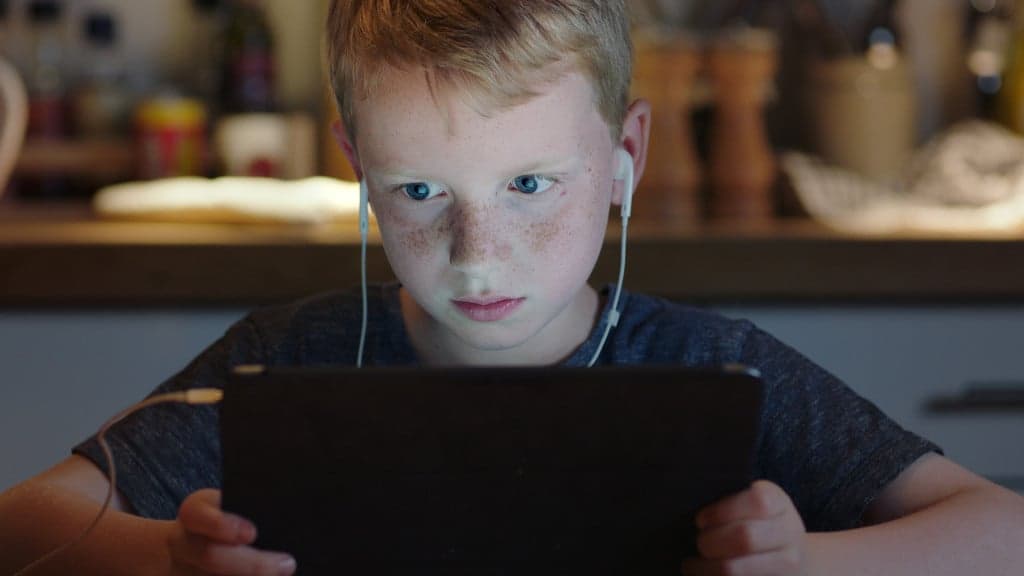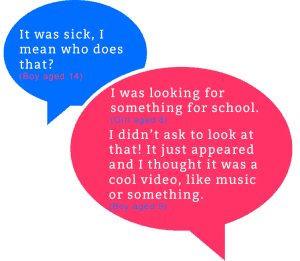What are the risks with this Google it approach, and why is it so important for us as adults/parents to think about?
Suppose you or I, as adults, want to search for an answer to something and we head off to the nearest internet connected device that accesses this plethora of interesting and not so interesting information: From there we can decide how we want to filter the information that’s most relevant to our search. We have an educated and informed choice about what we look at and for how long.
However, we have earned this right as adults due to one particular fact: our brain has surpassed the child and adolescent stage and we are able to engage our pre frontal cortex (the bit behind your eyes), consider consequences and really think about our actions.
We can make decisions based on what is called in neuroscience terms our “executive functioning” (a posh description of our ability to think, plan, reason and delay our behaviour based on morals and values)
Consequences of being too curious online
However, we may have accidentally looked at things on the internet that we wish we had never clicked on or sent something electronically which wish we could stop in transit as soon as we hit send. (You know those emails/texts/pictures to/about your partner, boss or friend).
I have been known to go on a tangent and find myself on the internet for far longer that I initially intended, but there’s one thing that stops me clicking on a number of videos/pictures and that is I do not want to see these things.
I get a funny feeling in my stomach and my brain interprets this as a feeling of curiosity, which will end with me seeing something I can never un-see. Ever. So I don’t click it.
You see, that’s the thing with images, videos, text, photos and anything else that is on the internet/devices, once you see it you cannot un-see it. It’s the thing about sending something electronically; once it’s sent, it’s sent.
You can’t chase after it like the postman or cancel it. It’s permanent. You made a choice and it comes with consequences.

Curiosity in children – What you need to know
In a nutshell, children and young people do not think the same way as us ‘grown ups’. Their brains have not developed enough to be able to weigh up consequences in the same way, not until they are about 25 years of age when the brain fully matures.
Curiosity is a developmental part of their growth, it can be exacerbated and encouraged by peer pressure. During adolescence (around 12-25 years of age) they have hyper-rational thinking (they take more risks based on evaluations their brains make).
Some children do not have the ability to delay gratification and may be impulsive without taking a moment to pause. In short, children will be children. They will be curious and, as we know, once something becomes forbidden fruit, it becomes much more appealing.
If we put up “no entry” signs, warnings about adult content and prevent children from exploring this online world, I can tell you from experiences in the therapy room, some children feel more driven to look.
They can be excited by the prospect of being able to watch/do/send something they maybe ‘shouldn’t’. Children may seek their peers for this information or be secretive and deceitful in order to play/go online and this puts them at risk.
Having an open dialogue with a child can help prevent exposure to inappropriate content
Children who do not have an open, balanced, informed dialogue with their parents about online risks, curiosity and acceptable behaviours risk encountering images, videos and text that they are not emotionally or psychologically ready for.
This can put them in positions where they are affected or upset and, if they are unsure of a parent/adult’s reaction, they may be less willing to talk about this or report inappropriate content.
Children and young people need us to understand their natural curiosity and to speak with them about this, without becoming overbearing (many protective parents who do this with the best intentions are reported by clients to be too smothering and children can and will rebel).
We need to allow children to explore and be curious and, with a guiding hand, helping them understand that there may be content that is not safe or appropriate and can result in them becoming distressed, upset or even traumatised.
If we take an active role in our own gentle curiosity (not being nosey) and ask our children about the internet and how/what they use it for, they are likely to feel engaged with, listened to and appreciated and this results in a more open and honest conversation.
You, as the parents, can then make your parenting judgements based on your child’s abilities, which are probably far more advanced than you realise. Children can self monitor their behaviour if they feel less restricted and trusted.
Isn’t this what we want as parents?


 These are direct quotes from some of the young clients who appear in my therapy room for issues that they often relate to the internet.
These are direct quotes from some of the young clients who appear in my therapy room for issues that they often relate to the internet.


